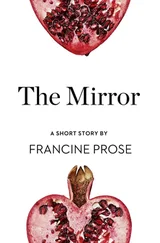Samuel Goodrich - Peter Parley's Own Story. From the Personal Narrative of the Late Samuel G. Goodrich, («Peter Parley»)
Здесь есть возможность читать онлайн «Samuel Goodrich - Peter Parley's Own Story. From the Personal Narrative of the Late Samuel G. Goodrich, («Peter Parley»)» — ознакомительный отрывок электронной книги совершенно бесплатно, а после прочтения отрывка купить полную версию. В некоторых случаях можно слушать аудио, скачать через торрент в формате fb2 и присутствует краткое содержание. Издательство: Иностранный паблик, Жанр: foreign_language, foreign_prose, на английском языке. Описание произведения, (предисловие) а так же отзывы посетителей доступны на портале библиотеки ЛибКат.
- Название:Peter Parley's Own Story. From the Personal Narrative of the Late Samuel G. Goodrich, («Peter Parley»)
- Автор:
- Издательство:Иностранный паблик
- Жанр:
- Год:неизвестен
- ISBN:нет данных
- Рейтинг книги:5 / 5. Голосов: 1
-
Избранное:Добавить в избранное
- Отзывы:
-
Ваша оценка:
- 100
- 1
- 2
- 3
- 4
- 5
Peter Parley's Own Story. From the Personal Narrative of the Late Samuel G. Goodrich, («Peter Parley»): краткое содержание, описание и аннотация
Предлагаем к чтению аннотацию, описание, краткое содержание или предисловие (зависит от того, что написал сам автор книги «Peter Parley's Own Story. From the Personal Narrative of the Late Samuel G. Goodrich, («Peter Parley»)»). Если вы не нашли необходимую информацию о книге — напишите в комментариях, мы постараемся отыскать её.
Peter Parley's Own Story. From the Personal Narrative of the Late Samuel G. Goodrich, («Peter Parley») — читать онлайн ознакомительный отрывок
Ниже представлен текст книги, разбитый по страницам. Система сохранения места последней прочитанной страницы, позволяет с удобством читать онлайн бесплатно книгу «Peter Parley's Own Story. From the Personal Narrative of the Late Samuel G. Goodrich, («Peter Parley»)», без необходимости каждый раз заново искать на чём Вы остановились. Поставьте закладку, и сможете в любой момент перейти на страницу, на которой закончили чтение.
Интервал:
Закладка:
Mutton and poultry came in their turn, all from our own stock, except when on Thanksgiving-day some of the magnates gave the parson a turkey. This, let me observe, in those good old times, was a bird of mark; no timid, crouching biped, with downcast head and pallid countenance, but stalking like a lord, and having wattles red as a "banner bathed in slaughter." His beard was long, shining, and wiry. There was, in fact, something of the native bird still in him, for though the race was nearly extinct, a few wild flocks lingered in the remote woods. Occasionally, in the depth of winter, and towards the early spring, these stole to the barnyard, and held communion with their civilized cousins. Severe battles ensued among the leaders for the favors of the fair, and as the wild cocks always conquered, the vigor of the race was kept up.
Our bread was made of rye, mixed with Indian meal. Wheat bread was reserved for the sacrament and company; a proof not of its superiority, but of its scarcity and consequent estimation. All the vegetables came from our garden and farm. The fuel was supplied by our own woods – sweet-scented hickory, snapping chestnut, odoriferous oak, and reeking, fizzling ash – the hot juice of the latter, by the way, being a sovereign antidote for the earache. These were laid in huge piles, all alive with sap, on the tall, gaunt andirons. The building of a fire, a real architectural achievement, was always begun by daybreak. There was first a back-log, from fifteen to four-and-twenty inches in diameter, and five feet long, imbedded in the ashes; then came a top log, then a fore stick, then a middle stick, and then a heap of kindlings, reaching from the bowels down to the bottom. Above all was a pyramid of smaller fragments, artfully adjusted, with spaces for the blaze. Friction matches had not then been invented. So, if there were no coals left from the last night's fire, and none to be borrowed from the neighbors, resort was had to flint, steel, and tinder-box. Often, when the flint was dull, and the steel soft, and the tinder damp, the striking of fire was a task requiring both energy and patience. If the pile on the andirons was skilfully constructed, the spark being applied, there was soon a furious stinging smoke; but the forked flame soon began to lick the sweating sticks above, and by the time the family had arisen, and assembled in the "keeping-room," there was a roaring blaze, defying the bitter blasts of winter, which found abundant admittance through the crannies of the doors and windows. To feed the family fire in those days, during the severe season, was fully one man's work.
But to go on with our household history. Sugar was partially supplied by our maple-trees. These were tapped in March, the sap being collected, and boiled down in the woods. This was wholly a domestic operation, and one in which all the children rejoiced, each taking his privilege of tasting, at every stage of the manufacture. The chief supply of sugar, however, was from the West Indies.
Rum was largely consumed, but our distilleries had scarcely begun. A half-pint of it was given as a matter of course to every day laborer, more particularly in the summer season. In all families, rich or poor, it was offered to male visitors as an essential point of hospitality, or even good manners. Women – I beg pardon – ladies, took their schnapps, then named "Hopkins' Elixir," which was the most delicious and seductive means of getting tipsy that has been invented. Crying babies were silenced with hot toddy. Every man imbibed his morning dram, and this was esteemed temperance. There is a story of a preacher, about those days, who thus lectured his parish: "I say nothing, my beloved brethren, against taking a little bitters before breakfast, and after breakfast; especially if you are used to it. What I contend against is, this dramming, dramming, dramming, at all hours of the day. There are some men who take a glass at eleven o'clock in the forenoon, and at four in the afternoon. I do not purpose to contend against old-established customs, my brethren, rendered respectable by time and authority; but this dramming, dramming, is a crying sin in the land."
As to brandy, I scarcely heard of it, so far as I can recollect, till I was sixteen years old, and, as an apprentice in a country store, was called upon to sell it. Cider was the universal table beverage. Brandy and whisky soon after came into use. I remember, in my boyhood, to have seen a strange zigzag tin tube, denominated a "still," belonging to one of our neighbors, converting, drop by drop, certain innocent liquids into "fire-water." But, in the days I speak of, French brandy was confined to the houses of the rich, and to the drug-shop.
Wine, in our country towns, was then almost exclusively used for the sacrament.
There was, of course, no baker in Ridgefield; each family not only made its own bread, cakes, and pies, but its own soap, candles, butter, cheese, and the like. The manufacture of linen and woollen cloth was no less a domestic operation. Cotton – that is, raw cotton – was then wholly unknown among us at the North, except as a mere curiosity, produced somewhere in the tropics; but whether it grew on a plant, or an animal, was not clearly settled in the public mind.
We raised our own flax, rotted it, hackled it, dressed it, and spun it. The little wheel, turned by the foot, had its place, and was as familiar as if it had been a member of the family. How often have I seen my mother, and my grandmother, too, sit down to it – though this, as I remember, was for the purpose of spinning some finer kind of thread – the burden of the spinning being done by a neighbor of ours, Sally St. John. By the way, she was a good-hearted, cheerful old maid, who petted me beyond my deserts. I grieve to say, that I repaid her partiality by many mischievous pranks; for which I should have been roundly punished, had not the good creature forgiven and concealed my offences. I did, indeed, get fillipped for catching her foot one day in a steel-trap; but I declare that I was innocent of malice prepense, inasmuch as I had set the trap for a rat, instead of the said Sally. Nevertheless, the verdict was against me; not wholly on account of my misdemeanor in this particular instance, but because, if I did not deserve punishment for that, I had deserved it, and should deserve it for something else; and so it was safe to administer it.
The wool was also spun in the family; partly by my sisters, and partly by Molly Gregory, daughter of our neighbor, the town carpenter. I remember her well as she sang and spun aloft in the attic. In those days, church-singing was the only one of the fine arts which flourished in Ridgefield, except the music of the drum and fife. The choir was divided into four parts, ranged on three sides of the meeting-house gallery. The tenor, led by Deacon Hawley, was in front of the pulpit, the bass to the left, and the treble and counter to the right; the whole being set in motion by a pitch-pipe, made by the deacon himself, who was a cabinet-maker. Molly took upon herself the entire counter, for she had excellent lungs. The fuguing tunes, which had then run a little mad, were her delight. In her solitary operations aloft I have often heard her send forth, from the attic windows, the droning hum of her wheel, with fitful snatches of a hymn, in which the bass began, the tenor followed, then the treble, and, finally, the counter – winding up with irresistible pathos. Molly singing to herself, and all unconscious of eavesdroppers, carried on all the parts thus: —
Bass. "Long for a cooling —
Tenor. "Long for a cooling —
Treble. "Long for a cooling —
Counter. "Long for a cooling stream at hand,
And they must drink or die!"
The knitting of stockings was performed by the women of the family in the evening, and especially at tea-parties. This was considered a moral, as well as an economical, employment; for people held, with Dr. Watts, that
Читать дальшеИнтервал:
Закладка:
Похожие книги на «Peter Parley's Own Story. From the Personal Narrative of the Late Samuel G. Goodrich, («Peter Parley»)»
Представляем Вашему вниманию похожие книги на «Peter Parley's Own Story. From the Personal Narrative of the Late Samuel G. Goodrich, («Peter Parley»)» списком для выбора. Мы отобрали схожую по названию и смыслу литературу в надежде предоставить читателям больше вариантов отыскать новые, интересные, ещё непрочитанные произведения.
Обсуждение, отзывы о книге «Peter Parley's Own Story. From the Personal Narrative of the Late Samuel G. Goodrich, («Peter Parley»)» и просто собственные мнения читателей. Оставьте ваши комментарии, напишите, что Вы думаете о произведении, его смысле или главных героях. Укажите что конкретно понравилось, а что нет, и почему Вы так считаете.












